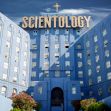The Church of Scientology recently asked the Supreme Court to weigh in on whether they can enforce a “religious arbitration agreement” against women claiming that they suffered stalking and harassment by the Church. The women claim the Church used harassment and intimidation in retaliation for coming forward about sexual assaults committed by church member and That ‘70s Show actor Danny Masterson. Should the Court take up the case, it could have profound implications concerning whether any religious institution can use mandatory arbitration agreements to silence accusers concerning allegations of abuse.
The case concerns prominent Church member Danny Masterson, who faces an upcoming rape trial in California. The victims, former Church members, claim that Masterson sexually assaulted them between 2000 and 2003. Separate from the rape trial, the women filed a civil suit against the Church of Scientology. They allege that they reported the alleged assaults to the Church and, instead of responding appropriately, the Church encouraged its members to engage in a vicious campaign of harassment against them. They claim Church members hacked their emails and security systems, stalked them in person, killed their pets, ran them off the road, and threatened to kill them. The Church has denied these allegations.
The Church sought to have the case dismissed on the grounds that when they were Church members, they signed a mandatory arbitration agreement. Pursuant to the agreement, all claims against the Church, in perpetuity, must be resolved by a Church-run arbitration process. A lower court agreed with their interpretation and dismissed the case. A California appeals court reversed, finding that the women had a First Amendment right to leave the Church and that upon leaving, the arbitration agreement no longer controlled them.
The appeals court emphasized that much of the alleged conduct occurred after the women left the church: “Once petitioners had terminated their affiliation with the Church, they were not bound to its dispute resolution procedures to resolve the claims at issue here, which are based on alleged tortious conduct occurring after their separation from the Church and do not implicate resolution of ecclesiastical issues.”
The Church first sought review by the California Supreme Court, which refused to take the case. The Church has now filed a petition for review by the U.S. Supreme Court. The petition emphasizes the history and importance of “religious arbitration,” under which the matter would be resolved following church practices and religious doctrine.
If the Court takes the case and rules in Scientology’s favor, any religious institution could require prospective members to sign binding arbitration agreements when they join and then enforce those agreements even after the members leave the church. Victims of any tortious conduct committed by the church after leaving the church would be limited to an arbitration proceeding run by the church itself and bound by any rules of privacy governing such arbitration.
The case also necessarily requires consideration of an individual’s First Amendment rights as against the First Amendment rights of a religious institution. Given the current Court majority’s predilection toward religious freedom, the case presents a tough dilemma for conservative justices: Whose religious freedom matters more?






